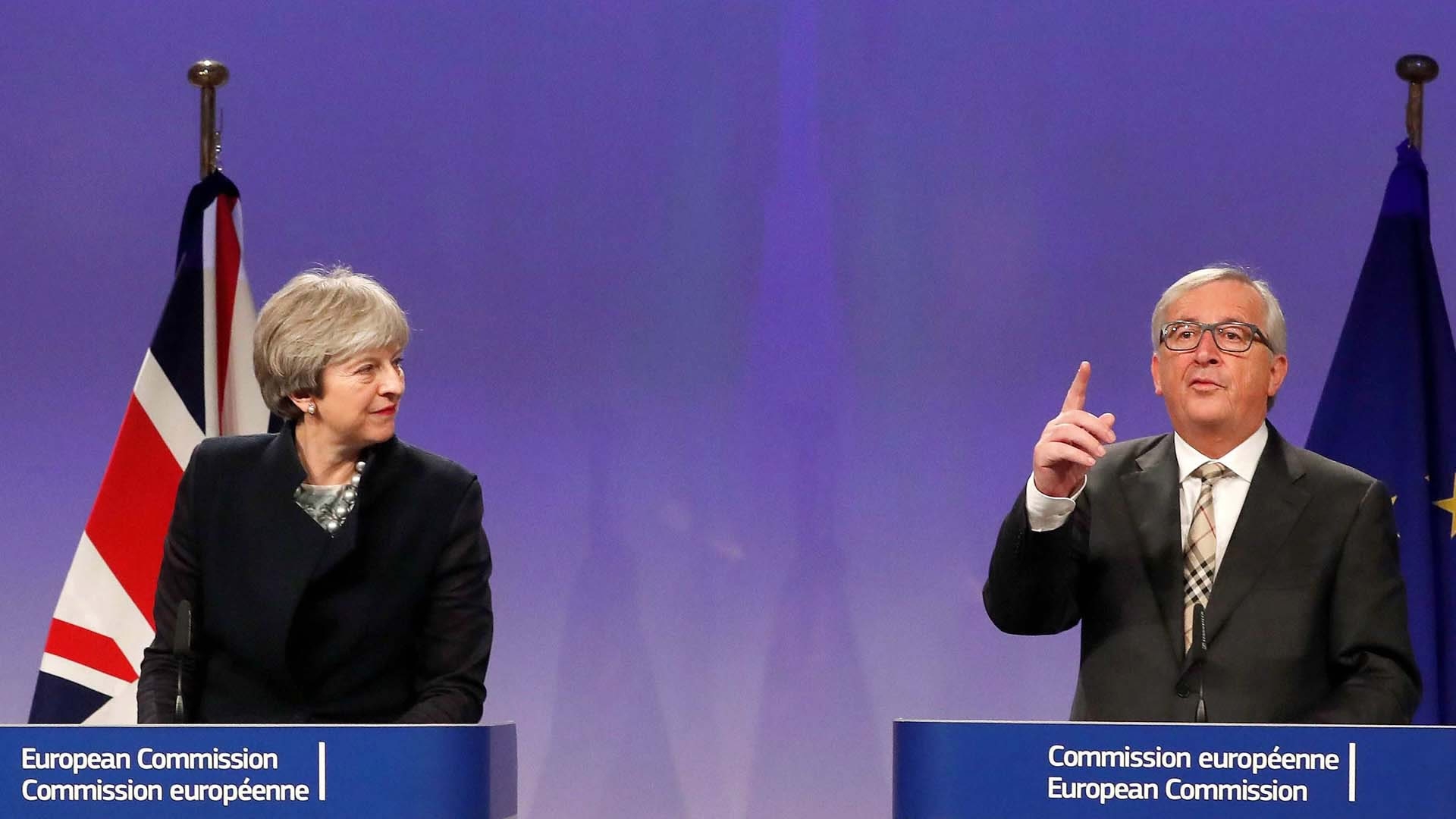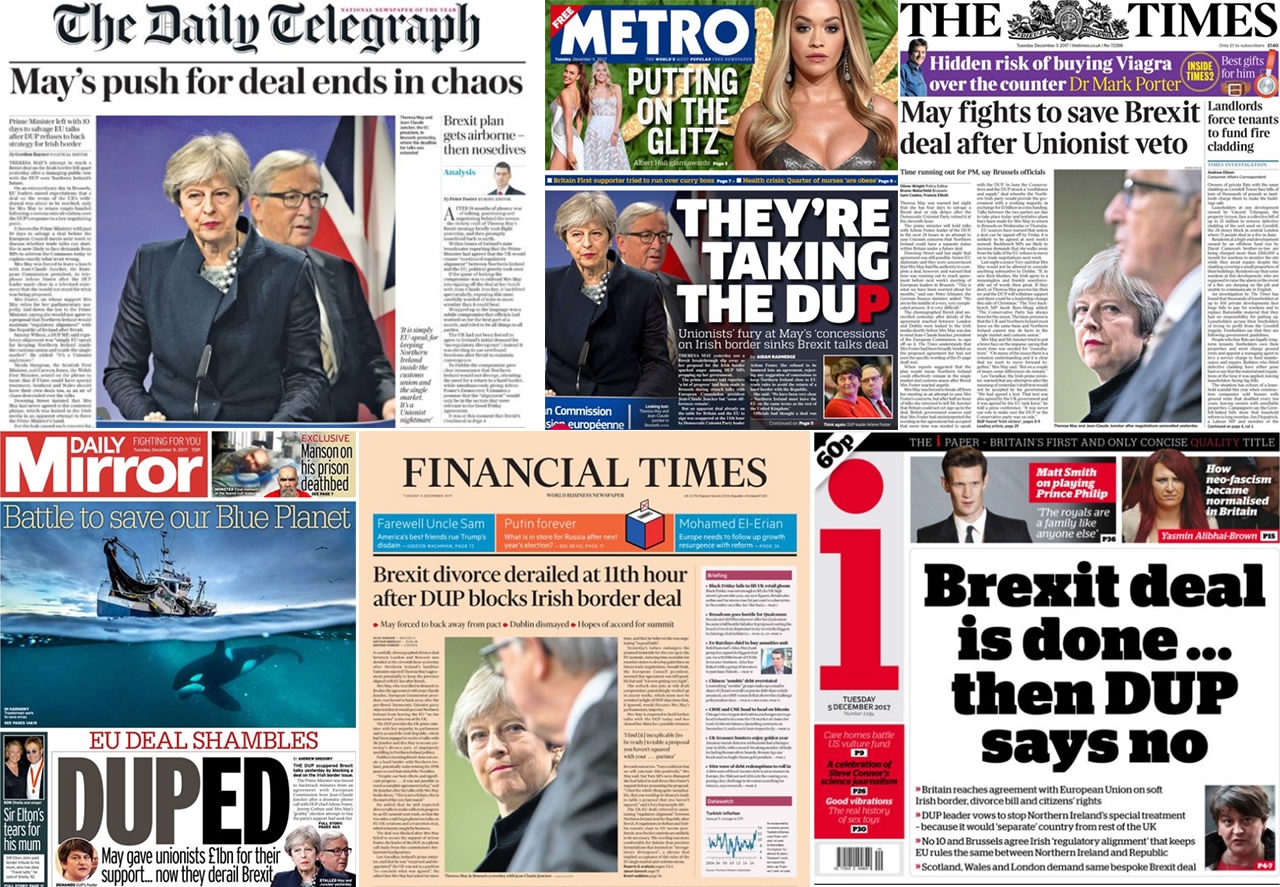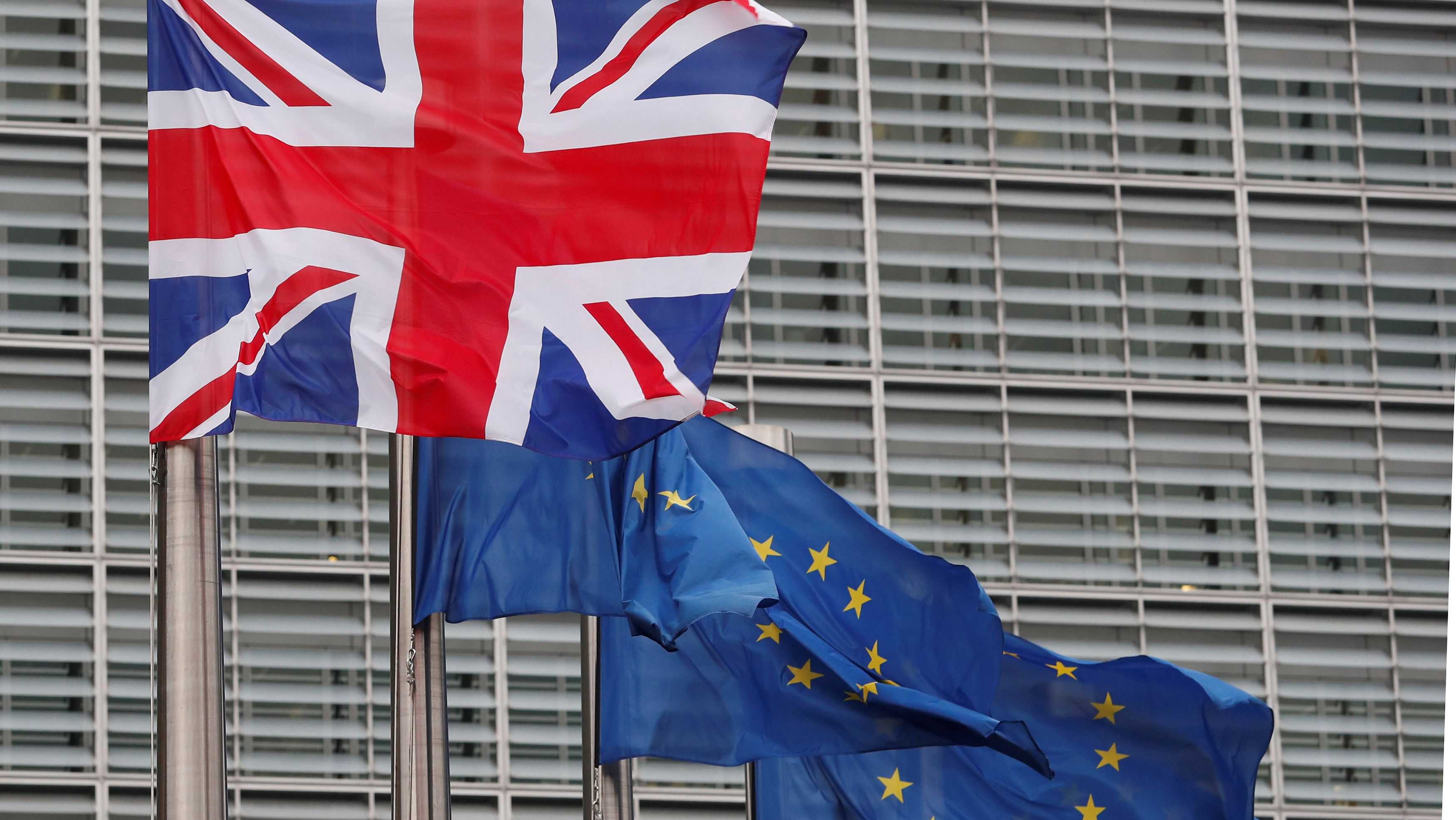
Politics
10:34, 05-Dec-2017
No deal… yet: Brexit negotiations falter over Irish border
By Jasmine Cen

Britain and the European Union (EU) looked on course to strike a deal that would allow Brexit negotiations to move to the next stage on Monday, but an announcement was delayed after last-minute objections over the Irish border issue.
Agreement is thought to have been reached on a "divorce bill", with Britain expected to pay around 50 billion euros to exit the EU. A deal on the rights of EU citizens living in the UK is also understood to have been struck.

CGTN Photo
CGTN Photo
Although talks between UK Prime Minister Theresa May and European Commission President Jean-Claude Juncker in Brussels on Monday didn’t result in a final deal, further developments on the Irish border issue are expected in the coming days.
EU leaders are due to decide whether “sufficient progress” has been made to begin talks on the future EU-UK relationship at an EU Council summit on December 14-15.
Three keys to progress
Three keys are needed to unlock the door to the next phase of Brexit negotiations: An agreement on the Irish border, a financial settlement, and a deal on citizens' rights.
Irish border
The 499-kilometer border between the Republic of Ireland and Northern Ireland has been a contentious issue during negotiations, not least because of the broader political sensitivities for a region with a troubled past.
The principal sticking point on a frontier deal is how to impose a border: Hard, soft, at-sea and electronic options have been floated. Issues including trade of goods, migration, smuggling, and everyday cross-border movement are at play.
Ireland is fearful that if Britain does leave the single market and customs union, as it has previously threatened, a hard border to check transfer of goods would be inevitable. This could be a serious threat to the peace process, which has been in place since the 1990s after decades of violence. The 1998 Good Friday peace agreement guarantees unmanned borders.

Reuters Photo
Reuters Photo
A draft agreement was leaked early on Monday indicating British-controlled Northern Ireland would comply with "regulatory alignment" – effectively stay in the European single market and follow customs union rules – in order to avoid a hard border.
This satisfied Dublin, but the DUP, the small Northern Irish party on which May depends for a majority in parliament, blocked the deal. The unionist party fears such a “special status” would drag Northern Ireland away from mainland Britain.
“We have been very clear,” said DUP leader Arlene Foster. “Northern Ireland leaves the EU on the same terms as the rest of the United Kingdom. We will not accept any form of regulatory divergence which separates Northern Ireland economically or politically from the rest of the United Kingdom.”
A compromise is thought to be in the wording rather than the substance, however, so an agreement may not be too far away.
The wider complexities of the issue were demonstrated by the leaders of Scotland and Wales. Both announced that their countries would seek special terms if they were granted to Northern Ireland.
And London’s Mayor Sadiq Khan tweeted: “Huge ramifications for London if Theresa May has conceded that it’s possible for part of the UK to remain within the single market and customs union after Brexit.”
Rights of EU citizens in the UK
The post-Brexit legality of EU citizens staying in the UK has been a long-running saga, with suggestions that the issue could be used as leverage in negotiations causing outrage early in the process.
Almost three million people from elsewhere in the EU live in the UK, and over one million Britons live in other parts of the bloc.
Britain has now offered a broad deal that guarantees that EU citizens who permanently reside in the UK will not have to apply for a special status post-Brexit.
The specifics of a post-Brexit deal for EU citizen’s rights in the country remains unclear, but data shows the number of EU citizens who are coming to the UK fell over the past year.
Net migration has fallen to 230,000, according to data provided by the Office for National Statistics (ONS), down nearly one third in the one-year period since the UK voted to leave the EU last June.
Exit bill
Britain is reported to have offered to pay the EU an exit payment worth between 50 billion euros over several decades to cover financial liabilities.
Although the headline number is large, Professor Iain Begg at the London School of Economics said it is small change in the context of Britain’s overall public finances.
The negotiation continues as May looks to open talks about Britain’s future relationship with the EU. No deal, or a bad deal, on trade would likely cost Britain many billions of euros more in the long term.
Although an acceptable sum is believed to have been agreed between London and Brussels, hardliners in May’s Conservative Party continue to object to any substantial payment being made.
What’s next?
The UK must come forward with a plan that deals with the three key issues this week, ahead of an EU27 leaders meeting on December 14-15 where it will be decided if "sufficient progress" has been made to begin talks on trade and transition.
May and Juncker on Monday both said they were confident that a deal will be reached over the coming days, so talks will continue in an attempt to resolve the outstanding issues.
7970km

SITEMAP
Copyright © 2018 CGTN. Beijing ICP prepared NO.16065310-3
Copyright © 2018 CGTN. Beijing ICP prepared NO.16065310-3